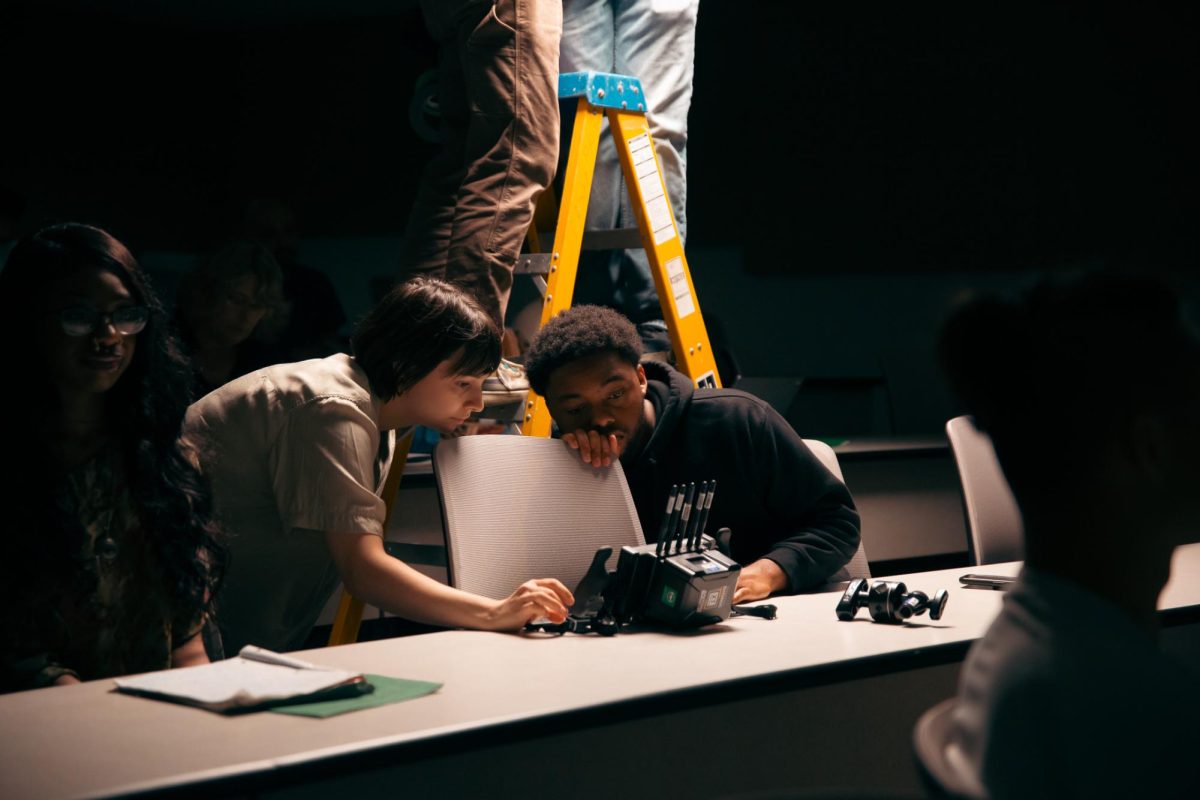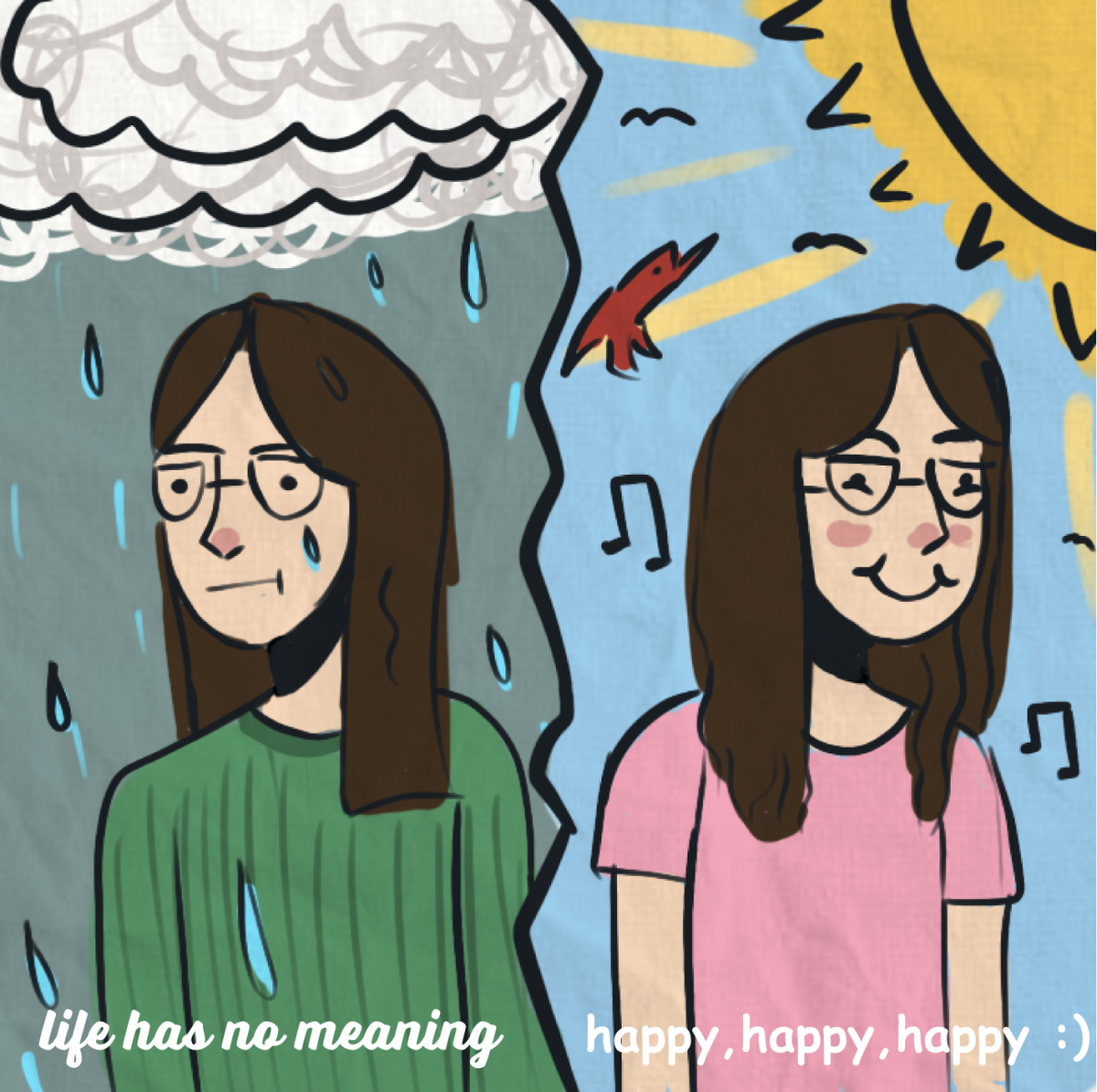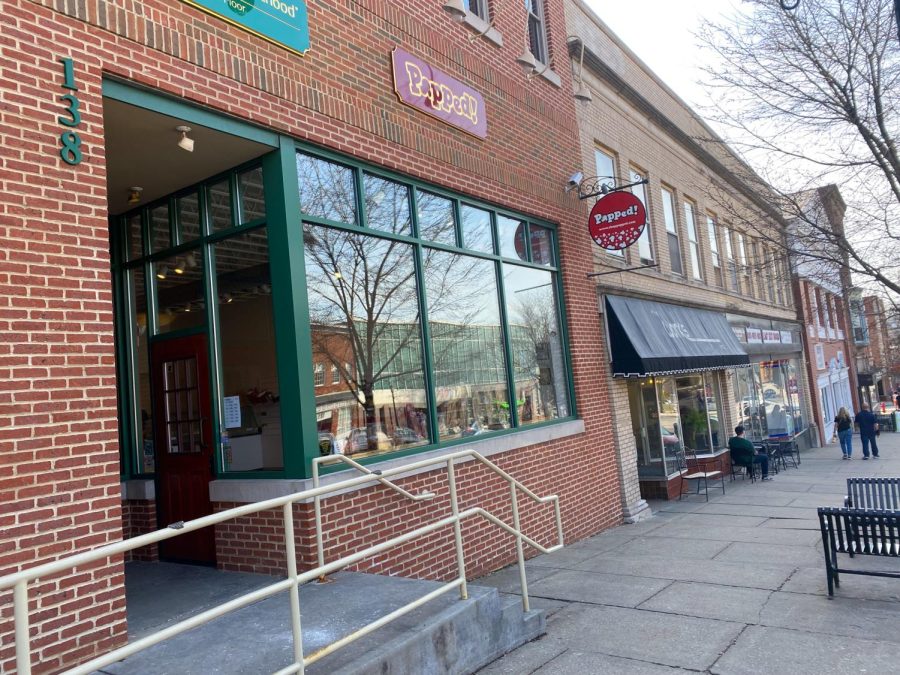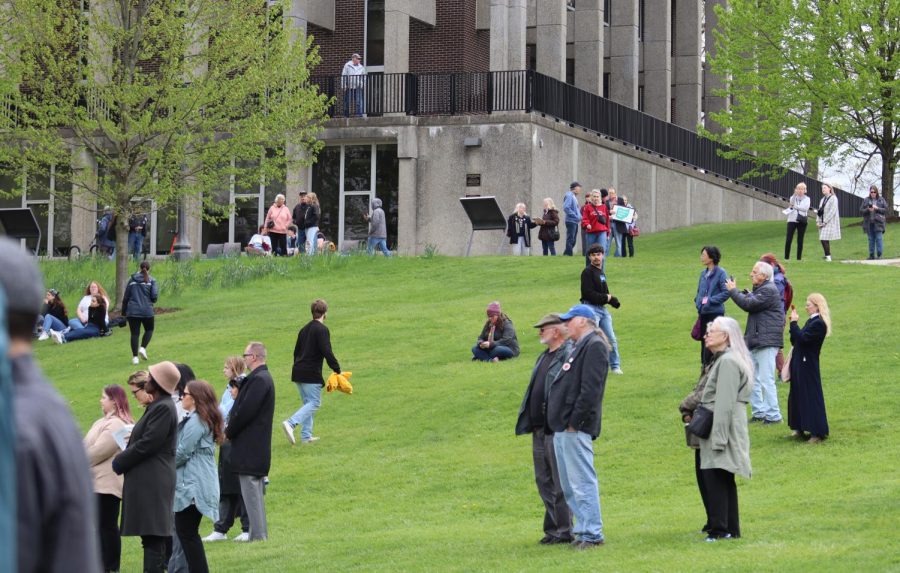Several Kent State students, alumni and professors successfully premiered or screened short films this month at the 48th Cleveland International Film Festival at Playhouse Square.
Students have been able to submit to CIFF in the past, but 2024 marked the first year of students in northeast Ohio being able to submit with the help of the Local Heroes Students Shorts Program under the direction of Paul Sloop, CIFF’s Short Films Lead Programmer.
“I knew the different programs at Tri-C, Kent State, Cleveland State and Wright State University have always been big submitters to us,” Sloop said. “We decided that we would do one program specifically for student films. It doesn’t change the status of how films are being considered or viewed; it just creates an extra program, an opportunity for them to get in where they’re the only films being considered for that specific program.”
The Local Heroes Students Shorts program screened April 11 with a 101 minute runtime. Kent State students made up three out of the 11 short films featured in the program: “Happy Place,” directed by recent graduate Michael Gregory; “How to Be a Productive Member of Society,” directed by junior digital media production major Micah Beck; and “Reciprocity,” directed by senior theatre studies major KG Gude.
According to Sloop, the Local Heroes Shorts program has always been about films made in Ohio by Ohio directors with stories straight out of Ohio. These short films tend to be deeply personal to their creators, and this year’s submissions from Kent State are no exception.
“Reciprocity” is a three-minute short film about the emotional experience of transgender people.
The film is different from the others in the sense that the story is told through theater and dance rather than with a traditional script with actors or a documentary style.
“Fate has, for whatever reason, continued to bring my work into the world of dance,” Gude said.
It is an intimate look into how transgender people are expected to process the hateful rhetoric that can surround them. The film progresses with voiceovers from various people, protests, talk shows, interviews, podcasts, newscasts and legislative sessions from the past year.
However, all those outside voices are silenced at the end and viewers are left with one voice that belongs to Elliot Page from an interview he did with ABC after he transitioned.
“What it [transitioning] has allowed me is what feels like truly being alive for the first time,” Page said.
“Reciprocity” challenges audiences’ perspectives in a meaningful way and may make viewers wonder what feeling alive might mean.
“I spent a lot of my time agonizing over the hateful and inaccurate things I saw, heard or read about transgender people, and it felt like I couldn’t get anyone else to be as upset about it, even when I made projects for other classes. It all made me sick to my stomach,” Gude said. “Post-production was more difficult. I spent a lot of time with content that fundamentally devalues me as a person. I also thought my work was mediocre all the way up until the final screenings in class. Seeing people’s reactions gave me a lot of confidence in it, and even more so when I found out it was going to be in CIFF. I’m really proud that even when I didn’t know it, my film has weight and the power to impact people.”
In “How to be a Productive Member of Society,” Beck asked the audience other existential questions. In the film, the viewer follows a regular white collar worker, Keith, throughout his day-to-day routine in a fast-paced, montage style. Beck intentionally made the film as repetitive as the main character’s life.
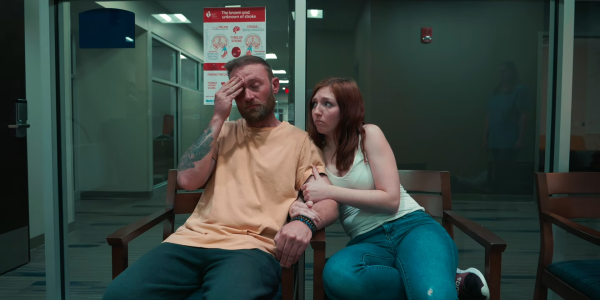
Beck said that the idea for the film came from his experience at the start of the COVID-19 pandemic. He recalled being in isolation and enduring what seemed to be a constant cycle of bad news that was anxiety inducing for him.
“Keith is a man that was just becoming overwhelmed by all the bad news that keeps happening and life still expects a lot from him,” Beck said. “He tries to do what you’re supposed to do and expected to do, but at the end of the day life is unrewarding to him. It just hits him when he’s not ready for it and he just kind of collapses, unfortunately.”
Beck said music was a big inspiration for him, particularly “Fitter, Happier” by Radiohead, which is about a minute and a half of a robotic voice telling the listener how to live life and how terrifying it can be.
The film features a voiceover that reads like a to-do list, but Beck says the irony of the film is that if you follow the advice of the voiceover and copy what Keith does throughout the film, viewers will not be “productive members of society.”
“I don’t know if I necessarily want it to be like a wake up call or anything, but I want it to be a commentary on what we’re expected to do, what those societal expectations are and I want people to question, ‘Why are we all doing this? Why is this kind of similar to my life?’” Beck said.
“Happy Place” is another deeply personal short film about Gregory’s father who passed away last January. The short film was Gregory’s senior capstone project, and it examined his father’s life, state of mind and his relationship with their family. Gregory said that the film’s purpose was to “bring our family closure, specifically my mom.”
Gregory recounted how difficult it was to make this film from start to finish. Each part of the process brought up different emotions and memories.
“The peak, for me, was when I showed my mom the film,” Gregory said. “The thing that made it all worth it was when she said that I hit the nail on the head on what she wanted people to know about my dad. The film definitely highlights negative aspects of his mental illness, but doesn’t put it down and brings to light and shows people that just because somebody has these issues doesn’t mean they’re a bad person.”
The film is also Gregory’s interpretation of the afterlife. He likes to think that our final resting place is the place where we are the most comfortable and happy.
“When people watch it, I want people to think about where they’re the most happy and if they were to pass away, where they would want to spend eternity,” Gregory said. “I feel that philosophy can open up a lot of doors for people because when people really think about it, some people might feel like there isn’t a place they’re happy, and that can get people thinking.”
Dana White, a director and assistant professor at Kent State, said she knows Gregory’s feelings of grief all too well. The short film “Turning Blue,” which details White dealing with the pressures of the caretaking and death of her mother, premiered at CIFF’s online festival in 2021.
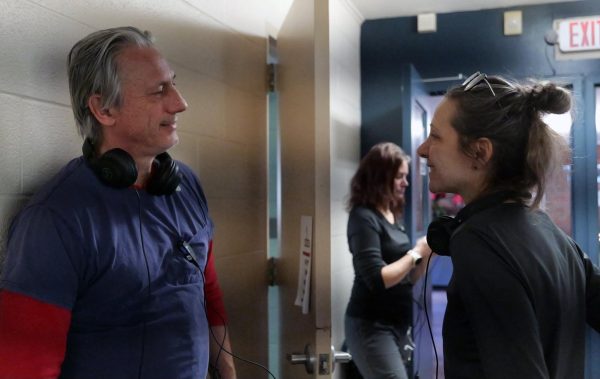
“When we decided to make ‘Turning Blue,’ it came out of the deepest sense of grief in me,” White said.
This year, White and her partner, co-director and fellow Kent State professor Christopher Knoblock, screened “Involuntary.” The film is the first installment of a short series they are working on under the Local Heroes Shorts program.
“Involuntary” follows the point of view of Carlton, a man in his 70s who suffers from dementia, as he is removed from his nursing home in the middle of the night. Each installation in the series will deal with themes of elder abuse, a practice called patient dumping and moral responsibility.
Knoblock said the inspiration for this series came after wrapping up “Turning Blue,” when he and White saw a story about patient dumping on the news.
“That’s what we wanted to explore in these films,” Knoblock said. “I have my family I protect, I have the people around me that I love and I’ll do anything to protect, but when does it start to become blurry? When we don’t really know these people, when do we start to not care?”
“When do we lose our compass on what is right and what is wrong is what we really wanted to explore in these films,” Knoblock continued.
White and Knoblock made the creative decision to tell this story through the perspective of a patient with dementia. Throughout the film, the audience is given a glimpse into Carlton’s head, which is not the clearest place and does not make him a reliable narrator.
White said they wanted to give audiences the experience of feeling like they were Carlton, but they had to add in a little bit of perspective so audiences could understand that Carlton does not see everything the way an outsider would because his brain is compromised.
“It was very challenging, and it required a lot of the different sorts of elements of cinema that we use,” White said. “Filmmaking is always tricking the audience. We’re always manipulating the audience, and the audience wants to be manipulated.”
In addition to being a professor, White also helped start the Female Filmmakers Initiative at Kent State. FFI is an organization that gives female filmmakers a community to lean on.
“I was finally in a position where I could help young women where I had never been helped,” White said. “I thought it was so important to have community.”
FFI is a “huge joy” for White, but in general, she said one of her favorite things about being a professor is to “see the light come on.”
“It’s really fun for me to see when someone doesn’t think they can do something and then they can,” White said. “You start to take away some of the barriers for them, and then all of a sudden they start to swim. The most joyful part is when they stop meeting with me and I start to see them doing things on their own without my help.”
Kent State alumna Madison Ledyard-King echoed the importance of the film community at Kent State.
“Being a part of the film community helped me to get to where I’m at today,” Ledyard-King said. “The classes were great. They gave me the tools and the skill set…, but having the grit and ambition to do more outside of what is expected of you is really what being a part of the film community taught me. Film is something where it’s like the bug that once it latches on to you it’s hard to let go.”
He screened his short film, “Black Boys Don’t Cry,” at CIFF this year under the Film Slam program. “Black Boys Don’t Cry” is a touching film about, “Opening up being as easy as… just finding someone who you can relate to and just start opening up. That’s where the film ends because that’s where the journey starts,” Ledyard-King said.
Gregory and Beck both mentioned how they appreciated how the professors were not too hands-on.
“Even though I didn’t really use them [professors] a ton for this film, it was always reassuring knowing in the back of my head if anything went wrong I could always come to them for guidance and help,” Gregory said. “There’s a pipeline brewing between industry professionals and people from Kent.”
All films are available to rent for a period of 48 hours on CIFF’s website.
Tessa Poulain is a reporter. Contact her at [email protected].













